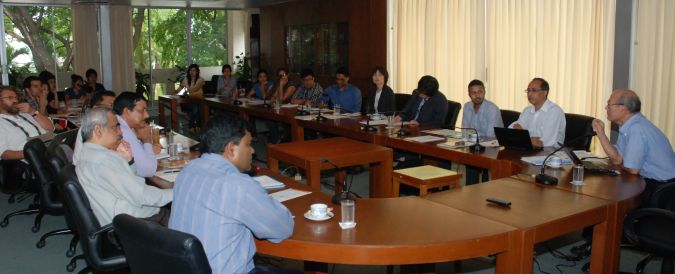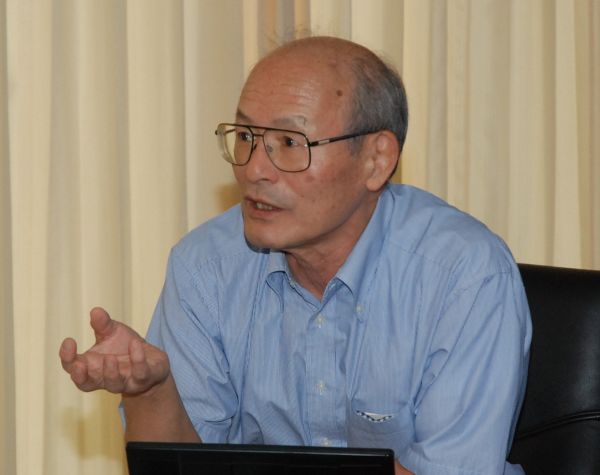The Japanese academic, who leads the International Research Network
for Low Carbon Societies (LCS-RNet), outlined the
myriad challenges facing the planet from climate change, and offered an
Asian way forward, at his lecture on 3 September 2012.
Introducing a new initiative from the Government of Japan which he
leads called the Low Carbon Asia Research Network (LoCARNet), Dr.
Nishioka said the platform is a multi-layered, flexible network for
researchers to contribute to low-carbon policy making. Dr.
Nishioka was accompanied by Dr. Hideyuki Mori, President, IGES,
who outlined the importance of mitigation research conducted
by the Kanagawa prefecture-based institute.
An autonomous and voluntary network, LoCARNet facilitates the Asian
region to initiate low-carbon growth by promoting research to support
policy development and enabling dialogue between scientists and
policy-makers. AIT, with its regional networks, and its wealth of
expertise and researchers working on climate change issues, can play a
real role, he said.
“We must reach a low-carbon society in the next fifty to one hundred
years,” Dr. Nishioka cautioned. To begin to the work of stabilizing the
planet, a key will be to “decouple” carbon emissions from economic
growth. It may require a specific “trigger” to happen, he said,
emphasizing the enormous complexity.
Citing regional success stories like the Indian IT industry, he said
developing countries in Asia have an advantage over structurally rigid
developed counties to “leapfrog” to a low carbon society through new
technologies and policy mechanisms designed to facilitate efficient,
low carbon growth. “Developing countries could learn from the mistakes
of the developed countries.”
Los Angeles may find it difficult to change its car-dominated
transportation network, but emerging cities in Asia may be able to plan
differently, he explained. “Out of the box” thinking will be required
to reach the fundamental transformation needed, expert lecture-goers
added.
On behalf of the Low Carbon Theme of the SDCC, AIT"s Dr. Shobhakar
Dhakal of Energy field of study, School of Environment, Resources and
Development (SERD) introduced and facilitated the discussion. He
summarized that LoCARNet stresses dialogue and enhanced collaboration
between stakeholders such as international organizations, and
development practitioners who can provide support to research exchange
and networking. The private sector must also play a role for green
investment and green growth.
LoCARNet also emphasizes that coordination is vital at the national,
sub-national /cities and regional levels. It also aims to increase
research capacity in the Asia-Pacific region through knowledge sharing
and information exchange, in particular South-South collaboration, in
addition to South-North collaboration.
The Government of Japan and the LCS-RNet proposed the establishment of
the the LoCARNet at the ASEAN+3 Environmental Minister Meeting in
October 2011 in Cambodia. It was then
launched on April 12 this year in Japan at the
"East Asia Low Carbon Growth Partnership Dialogue." The Ministry of the
Environment, Japan also announced its initiation on April 15, 2012 at a
dialogue of Ministers in Tokyo from the East Asia Summit (EAS) who
gathered to kick-off promotions of a platfrom for low-carbon
growth in the EAS region.
LoCARNet's first annual meeting will take place in Bangkok on 16-17
October 2012 under the theme "How to mobilise wisdom towards
low-carbon development in Asia."


